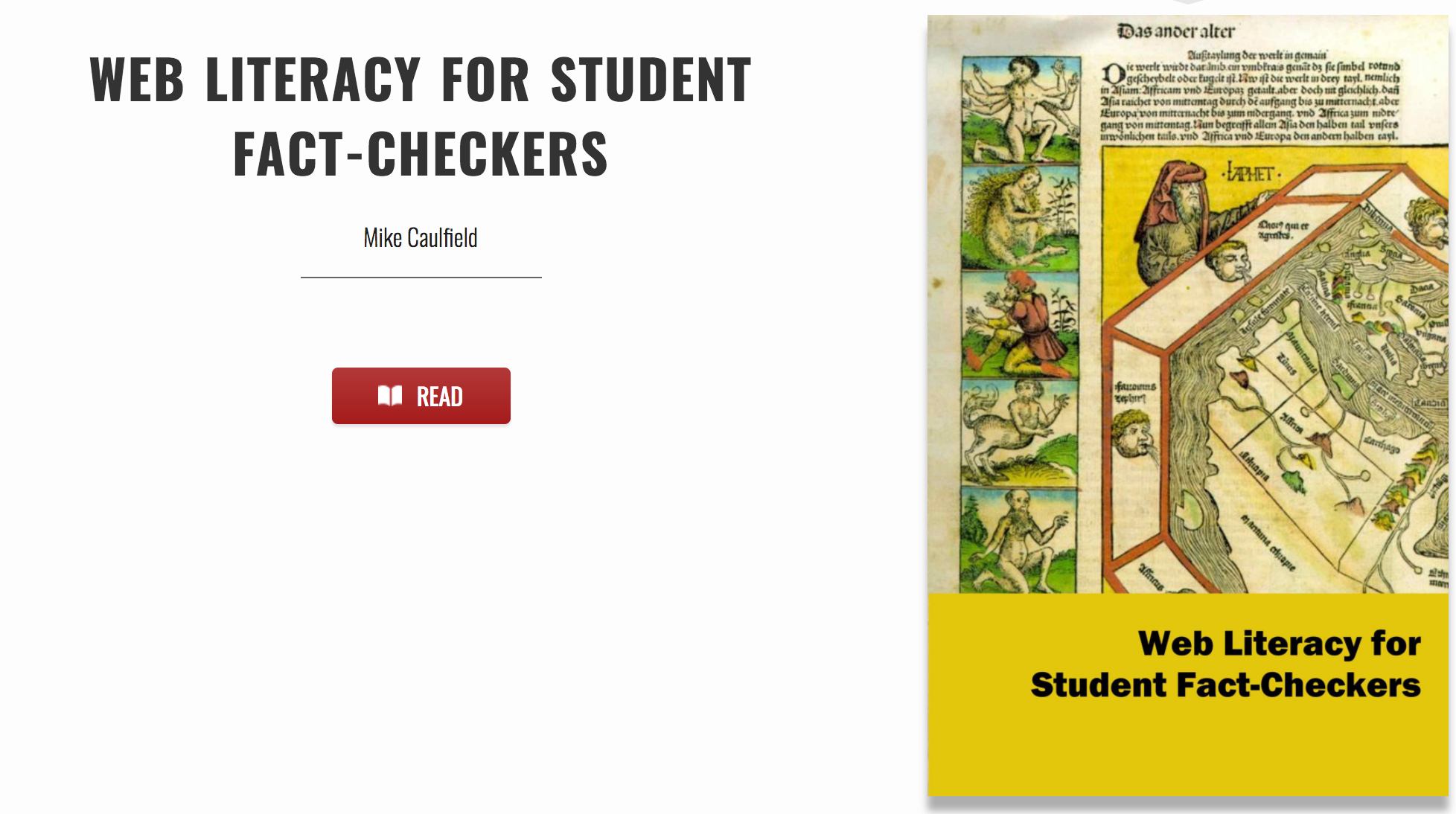Fact checking on the web – a guide for students
Mike Caulfield’s evolving book provides strategies and key questions
Content & learning objectives
“Much web literacy we’ve seen either asks students to look at web pages and think about them, or teaches them to publish and produce things on the web. While both these activities are valuable, neither addresses a set of real problems students confront daily: evaluating the information that reaches them through their social media streams. For these daily tasks, student don’t need long lists of questions to think about while gazing at web documents. They need concrete strategies and tactics for tracing claims to sources and for analyzing the nature and reliability of those sources.
The web gives us many such strategies and tactics and tools, which, properly used, can get students closer to the truth of a statement or image within seconds. For some reason we have decided not to teach students these specific techniques. As many people have noted, the web is both the largest propaganda machine ever created and the most amazing fact-checking tool ever invented. But if we haven’t taught our students those capabilities is it any surprise that propaganda is winning?”
Resources for learners, trainers, and developers
Are there badges available for this topic?
Not yet, but one may be forthcoming at a later date.
How can we run a workshop or classroom session on this topic?
There is a lot of scope for training on this topic and many institutional libraries, critical thinking, study skills, and academic literacy courses have begun to draw attention to these issues.
Are there resources and materials available?
Yes. The book itself provides links to example materials and other suggestions, as does Mike Caulfield’s blog and the other links listed.
Can I download a copy of this lesson?
Yes. Mike has released his book under a Creative Commons CC-BY licence and published it in a variety of downloadable formats, all of which can be accessed from the main link.
Further information & useful links:
Mike Caulfield : https://hapgood.us/about/
Digital Polarization Initiative: http://digipo.io/doku.php?id=digital_polarization
FactCheck from the Annenberg Public Policy Centre: http://www.factcheck.org/
Snopes – US online myth debunking site: http://www.snopes.com/
Howar Rheingold’s Crap Detection resources: https://docs.google.com/document/d/163G79vq-mFWjIqMb9AzYGbr5Y8YMGcpbSzJRutO8tpw/edit

